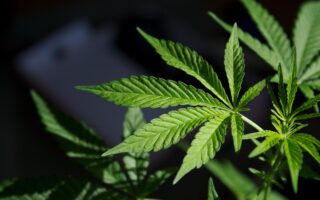In the ever-evolving landscape of cannabis consumption, the multifaceted relationship between THC (tetrahydrocannabinol) and headaches has sparked curiosity and concern among users and researchers alike. While many turn to THC for its therapeutic properties, seeking relief from chronic pain, migraines, or tension headaches, others find themselves facing an unexpected and unwelcome side effect: the THC headache. This paradoxical phenomenon raises important questions about dosage, individual physiology, and the intricate balance between relief and discomfort. In this article, we delve into the complex dynamics of THC and headaches, exploring their interplay and offering insights for those navigating the therapeutic realm of marijuana. Join us as we unravel the nuances of this peculiar experience and consider what it means for both casual users and those seeking medicinal benefits.
Table of Contents
- Understanding the Science Behind THC-Induced Headaches
- Recognizing Symptoms and Triggers for THC Headaches
- Effective Remedies and Preventative Strategies
- When to Seek Professional Help for THC-Related Discomfort
- Q&A
- Final Thoughts
Understanding the Science Behind THC-Induced Headaches
When exploring the phenomenon of headaches triggered by THC, it is crucial to acknowledge the intricate relationship between cannabis compounds and the human body. THC, or tetrahydrocannabinol, interacts with the endocannabinoid system, a complex network that helps regulate various physiological functions. This interaction can lead to changes in neurotransmitter release, which may inadvertently cause tension or discomfort in the head region. Some potential factors contributing to THC-induced headaches include:
- Dehydration: Cannabis can lead to dry mouth, often resulting in decreased fluid intake.
- Dosage: High doses of THC can overwhelm the system, triggering adverse reactions.
- Strain Type: Different cannabis strains contain varying levels of THC and other cannabinoids, influencing individual responses.
Moreover, the onset of such headaches may be exacerbated by environmental factors or the user’s own mental state at the time of consumption. THC can alter sensory perception, potentially amplifying existing tension or discomfort. To further illustrate the distinct characteristics of THC’s effects, the following table summarizes common attributes:
| Attribute | Effect |
|---|---|
| Onset Time | 30 minutes to 1 hour |
| Duration | 2 to 4 hours |
| Common Dosage | 5 to 10 mg for novices |
| Potential Relief | May alleviate stress and anxiety |
Recognizing Symptoms and Triggers for THC Headaches
Identifying the onset of THC-induced headaches often requires a keen awareness of both physical and psychological symptoms. Many users report a series of sensations that can alert them to the likelihood of developing a headache. Common physical symptoms include:
- Dull or throbbing pain that can worsen with movement or light exposure.
- Tension in the neck and shoulders, which can be exacerbated by prolonged sitting or improper posture.
- Nausea or gastrointestinal discomfort, which can accompany the headache.
In addition to recognizing these symptoms, understanding triggers can help mitigate the risk of THC headaches. Certain factors may precipitate these headaches, including:
- Overconsumption of cannabis products, particularly those high in THC.
- Dehydration, which can be particularly severe due to dry mouth, commonly referred to as “cottonmouth.”
- Inconsistent usage, where regular users suddenly take a break or adjust their consumption levels.
Effective Remedies and Preventative Strategies
When dealing with headaches associated with THC consumption, it’s essential to employ effective remedies that can provide relief. Many individuals find that hydration is crucial; drinking plenty of water can mitigate the dehydrating effects of THC. Additionally, incorporating light snacks that are rich in nutrients, such as nuts or fruits, may counteract any dips in blood sugar levels that could contribute to headache intensity. Over-the-counter pain relievers, such as ibuprofen or acetaminophen, can be helpful when used responsibly and as directed. Here are some natural alternatives:
- Ginger tea: Known for its anti-inflammatory properties, ginger can help alleviate nausea and discomfort.
- Cold compress: Applying a cold pack to the forehead may reduce tension and provide soothing relief.
- Aromatherapy: Essential oils like peppermint and lavender can also help ease headache symptoms.
Preventive strategies are equally important in managing THC-induced headaches. Understanding individual thresholds can significantly reduce the risk of experiencing discomfort. Keeping a journal of cannabis strains and consumption amounts can help identify problematic products that trigger headaches. Additionally, practicing mindfulness techniques or meditation can improve mental clarity and reduce overall stress levels, contributing to fewer headaches. Maintaining a balanced lifestyle with regular exercise and adequate sleep will also support headache prevention. Below is a simple table illustrating some effective lifestyle changes:
| Lifestyle Change | Benefit |
|---|---|
| Regular Hydration | Reduces dehydration risks |
| Sufficient Sleep | Supports physical and mental recovery |
| Routine Exercise | Promotes overall wellness and decreases stress |
When to Seek Professional Help for THC-Related Discomfort
It’s essential to listen to your body and recognize the signs when discomfort becomes too pronounced. If you find yourself experiencing persistent head pain, especially after using THC products, it may be time to consider professional advice. Pay attention to the following signals that indicate further evaluation is necessary:
- Duration: If your headache lasts more than 24 hours.
- Intensity: If the pain is severe enough to impede your daily activities.
- Accompanying Symptoms: If you experience additional symptoms like nausea, vomiting, or visual disturbances.
- History: If you have a history of migraines or other chronic conditions.
When seeking help, it’s crucial to provide your healthcare provider with as much information as possible. Consider filling out a simple table to track your symptoms before your appointment:
| Date | Duration | Intensity (1-10) | Additional Symptoms |
|---|---|---|---|
| MM/DD/YYYY | Hours/Days | 1-10 Scale | Nausea, dizziness, etc. |
| MM/DD/YYYY | Hours/Days | 1-10 Scale | Nausea, dizziness, etc. |
Consulting with a healthcare professional can help determine if your discomfort is a typical reaction to THC or if there are underlying health concerns. Taking proactive steps can pave the way for a better understanding of your body’s response to cannabis and enable you to enjoy it safely.
Q&A
Q&A: Understanding THC-Headaches
Q1: What is a THC headache?
A: A THC headache is a term used to describe headaches that can occur after consuming cannabis products high in tetrahydrocannabinol (THC). Some users report experiencing these headaches as a side effect of using cannabis, particularly if they consume large amounts or are sensitive to THC.
Q2: Why do THC headaches happen?
A: THC headaches can arise due to several factors. Some theories suggest that the active compounds in cannabis can lead to changes in blood flow, dehydration, or withdrawal in regular users when the effects wear off. It might also be related to overconsumption or sensitivity to THC, especially in individuals who are less experienced with cannabis.
Q3: Are certain individuals more prone to THC headaches?
A: Yes, people have different tolerances and reactions to THC. Individuals who are new to cannabis, those with a history of migraines, or those who consume high-potency products may be more susceptible to THC headaches. Additionally, factors such as stress, dehydration, or lack of sleep could exacerbate these headaches.
Q4: How can one prevent THC headaches?
A: To prevent THC headaches, consider starting with lower doses of THC and gradually increasing as you assess your tolerance. Staying hydrated, consuming cannabis with a balanced ratio of THC to CBD, and paying attention to your overall wellness can also help mitigate the risk of headaches.
Q5: What should you do if you experience a THC headache?
A: If you experience a THC headache, try to rest in a dark, quiet space and stay hydrated. over-the-counter pain relievers like ibuprofen or acetaminophen may also help alleviate the discomfort. If headaches persist or worsen, consulting a healthcare professional would be advisable.
Q6: Can CBD help with THC headaches?
A: Some users find that CBD may help reduce the severity of headaches that result from THC use. CBD has anti-inflammatory properties and may counteract some of the psychoactive effects of THC, potentially leading to a more balanced experience.
Q7: Is it possible to develop a tolerance to THC headaches?
A: With regular use, some individuals may develop a tolerance, which can lead to fewer headaches over time. However, this may vary significantly between individuals, and it’s essential to listen to your body and adjust consumption accordingly.
Q8: Are THC headaches a long-term concern?
A: For most users, THC headaches are not a long-term concern but rather a temporary side effect. However, if you find that you are frequently experiencing headaches during or after cannabis use, it might be worth reevaluating your consumption habits or seeking advice from a medical professional.
—
Q9: Can you continue to use THC if you experience headaches?
A: While you can continue using THC, it’s advisable to approach consumption with caution. Consider reducing your dosage, trying different strains, or incorporating CBD to see if these changes help minimize headaches. Always prioritize personal comfort and health in your cannabis journey.
Q10: Where can I find more information about THC headaches?
A: Reliable information can be found through medical journals, cannabis-focused educational websites, and discussions with healthcare professionals who have expertise in cannabinoid therapy. Additionally, community forums and resources dedicated to cannabis users may provide personal insights and experiences.
—
Understanding THC headaches can help users make more informed decisions about their cannabis consumption. Whether you’re a seasoned user or a curious novice, knowledge is key to creating your best experience.
Final Thoughts
In the intricate dance between dosage and effect, the phenomenon of THC-induced headaches serves as a potent reminder of the complexities inherent in cannabis consumption. As we navigate the ever-evolving landscape of cannabinoids, it becomes evident that mindfulness and moderation are paramount. Whether you’re a seasoned connoisseur or a curious newcomer, understanding your body’s responses to THC can empower you to enjoy this multifaceted plant without the unwelcome companion of discomfort. Embracing education and self-awareness will not only enhance your experience but also contribute to a broader conversation about cannabis and its myriad effects. it’s all about finding balance—because, like any good story, the best outcomes are often written with care and consideration.


